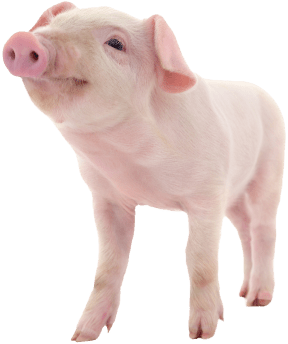Raising game birds like quail, pheasants, grouse, and turkeys comes with unique challenges, especially when it comes to their health. Disease outbreaks can be devastating, but you can keep your flocks thriving with the right knowledge and preventative measures. This article explores the most common diseases affecting game birds and strategies for effectively preventing and managing health issues.
Common diseases in game birds
Quails
Quails, including species like the California quail and scaled quail, are popular game birds known for their distinctive call and small size. The diseases that can significantly impact quail health and productivity include the following.
-
Respiratory infections. Caused by bacteria such as Mycoplasma gallisepticum, these infections manifest as sneezing, nasal discharge, and difficulty breathing. Severe cases can lead to decreased egg production and increased mortality.
-
Coccidiosis. A parasitic disease caused by protozoa, coccidiosis leads to diarrhea, lethargy, and weight loss. Infected birds often exhibit a decrease in feed intake and general weakness, making them more susceptible to other infections.
Pheasants
Pheasants, such as ring-necked pheasants and the common pheasant, are colorful and popular game birds. Despite their highly resistant wild origins, they are prone to several severe diseases that can affect their survival and quality of life.
-
Avian pox. This viral disease spreads through biting insects and contaminated environments. It causes wart-like lesions on the skin and mucous membranes, leading to difficulty in feeding and respiratory distress if lesions occur in the mouth or throat.
-
Aspergillosis. A fungal infection affecting the respiratory system, aspergillosis results in respiratory distress, weight loss, and sometimes death. It is caused by inhaling spores from contaminated bedding or feed.
Common Pheasant (Phasianus colchius)
Grouses
Grouses, including the black grouse and red grouse, thrive in various regions and are prized for their game qualities. The diseases these birds often face include botulism and lymphoproliferative disease.
-
Botulism. Caused by toxins produced by Clostridium botulinum bacteria, botulism results in paralysis and is often lethal if untreated. Birds affected by botulism exhibit weakness, inability to fly, and respiratory paralysis.
-
Lymphoproliferative disease. This viral infection leads to tumors and immunosuppression, making grouses vulnerable to secondary infections. Symptoms include enlarged lymphoid tissues and general poor health.
Turkeys
Whether domestic or wild, turkeys are significant in both agriculture and hunting. Their large size and unique care requirements make them particularly susceptible to certain diseases. Some of the major diseases they face include:
-
Blackhead disease (histomoniasis). Caused by the protozoan Histomonas meleagridis, blackhead disease damages the liver and cecum. Symptoms include yellowish diarrhea, listlessness, and high mortality rates, particularly in young turkeys.
-
Infectious bronchitis. A highly contagious viral disease, infectious bronchitis affects the respiratory tract and reproductive system. Infected turkeys exhibit coughing, sneezing, and reduced egg production, impacting their overall productivity.
Eastern Wild Tom Turkey (Meleagris gallopavo)
Preventive measures for game bird health
-
Biosecurity
Implementing strict biosecurity measures is essential in preventing the introduction and spread of diseases in game birds. Practice controlling access to bird areas, disinfecting equipment and facilities, and isolating new or sick birds. Ensure that wild birds do not come into contact with domestic flocks to prevent disease transmission.
-
Vaccinations
Vaccination programs tailored to the specific diseases prevalent in your area can significantly reduce the risk of infections. Vaccines are available for infectious bronchitis in turkeys and avian pox in pheasants. Consult a veterinarian to develop an appropriate vaccination schedule for your birds.
-
Parasite treatments
Regular treatment for parasites, both internal (such as coccidiosis in quails) and external (like mites in pheasants), is vital for maintaining bird health. Consider antiparasitic medications and maintain a clean living environment to help control parasite populations.
-
Nutrition
A balanced diet meets the nutritional needs of your game birds, strengthens their immune system, and enhances their ability to overcome diseases. Ensure they have access to clean water and high-quality feed containing essential vitamins and minerals.
Healthy game birds with QC Supply
Preventing and managing diseases in game birds like quails, pheasants, grouses, and turkeys involves a combination of vigilant health monitoring, biosecurity measures, vaccinations, parasite control, and proper nutrition. Proper care and attention to their health needs safeguard their well-being and contribute to the overall success and sustainability of your game bird farm.
Get all the necessary supplies to help your game birds thrive in our complete selection of products.

 You are being redirected to QC Supply Pharmacy, where you’ll find a wide selection of high-quality prescription and pharmaceutical products for animals of all sizes.
Enjoy the same great service and expertise you trust from QC Supply.
Click below to continue shopping.
Continue
No thanks, stay on the main site
Powered by
You are being redirected to QC Supply Pharmacy, where you’ll find a wide selection of high-quality prescription and pharmaceutical products for animals of all sizes.
Enjoy the same great service and expertise you trust from QC Supply.
Click below to continue shopping.
Continue
No thanks, stay on the main site
Powered by



